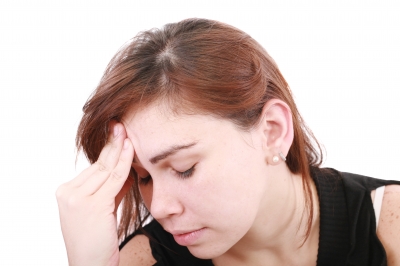A stroke is a health condition where the flow of blood to specific sections of the brain is interrupted. This predicament results in a reduction in the levels of oxygen and glucose that reach the brain cells, ultimately causing the death of these cells.
Researchers at Loyola University claim that caregivers for persons who have survived a stroke are at a higher risk of becoming diagnosed with depression than individuals without similar responsibilities.
[showmyads]Approximately 80% of stroke victims receive round-the-clock care from family members. Some of the physical and mental consequences experienced by stroke victims include personality changes, paralysis, speech difficulties and urinary incontinence. As might be expected, the loved ones of these sick persons regularly aid the survivors in managing their physical and cognitive disabilities. However as time passes, these duties often prove to be too demanding for caregivers to handle effectively.
“Stroke survivors can suffer significant and lasting disabilities that may require lifelong support from family and other caregivers,” said Karen Saban, PhD, RN, associate professor and leader of the study.
Often the family members of stroke sufferers find it a challenge to provide 24 hour care. The heavy workload places the caregivers at an increased risk of developing depression, anxiety and low quality sleep, each of which may lead to other serious health problems.
In order to test the hypothesis that caregivers of stroke survivors are prone to depression or other emotional struggles, researchers examined 45 females who were caring for a loved one who had become a stroke victim within the past 12 months. The participants of the study were gathered from social networking sites, support groups and two outpatient clinics. The participants had a median age of 55.8 years and provided an average of 50.7 hours of care each week. The researchers first asked the women to complete a survey, with questions on social support, perceived stress, depressive symptoms and quality of sleep. The answers to the questions clearly indicated that the participants were sleep deprived and had high levels of perceived stress and burden
The scientists then collected saliva samples to test for the stress-related hormone cortisol four times per day, over the course of two days. Experts have suggested that lower cortisol levels contribute to an increased risk of depression. The results of the saliva test showed that women caregivers with many symptoms of depression had declining levels of cortisol during the day, while those with fewer symptoms of depression had higher levels.
Nursing sick loved ones can be challenging, but the weight of responsibility is much greater when caring for stroke victims who are often completely incapable of tending to their own basic needs. When in this situation, reasons for stress might include financial problems, home confinement, the noncompliance of the stroke victim, the hassles of caring for the stroke survivor and the having of little or no time for oneself.
Image courtesy of FreeDigitalPhotos.net
Related articles
- Exercise After Stroke Could Help Improve Memory: Study (huffingtonpost.com)
- Male Stroke Survivors Dogged More By Depression Than Females: Study (sott.net)
- Major Depressive Disorder and Stroke Risks: A 9-Year Follow-Up Population-Based, Matched Cohort Study (plosone.org)
- For the Alzheimer’s Caregiver, Depression Is a Real Risk (everydayhealth.com)



